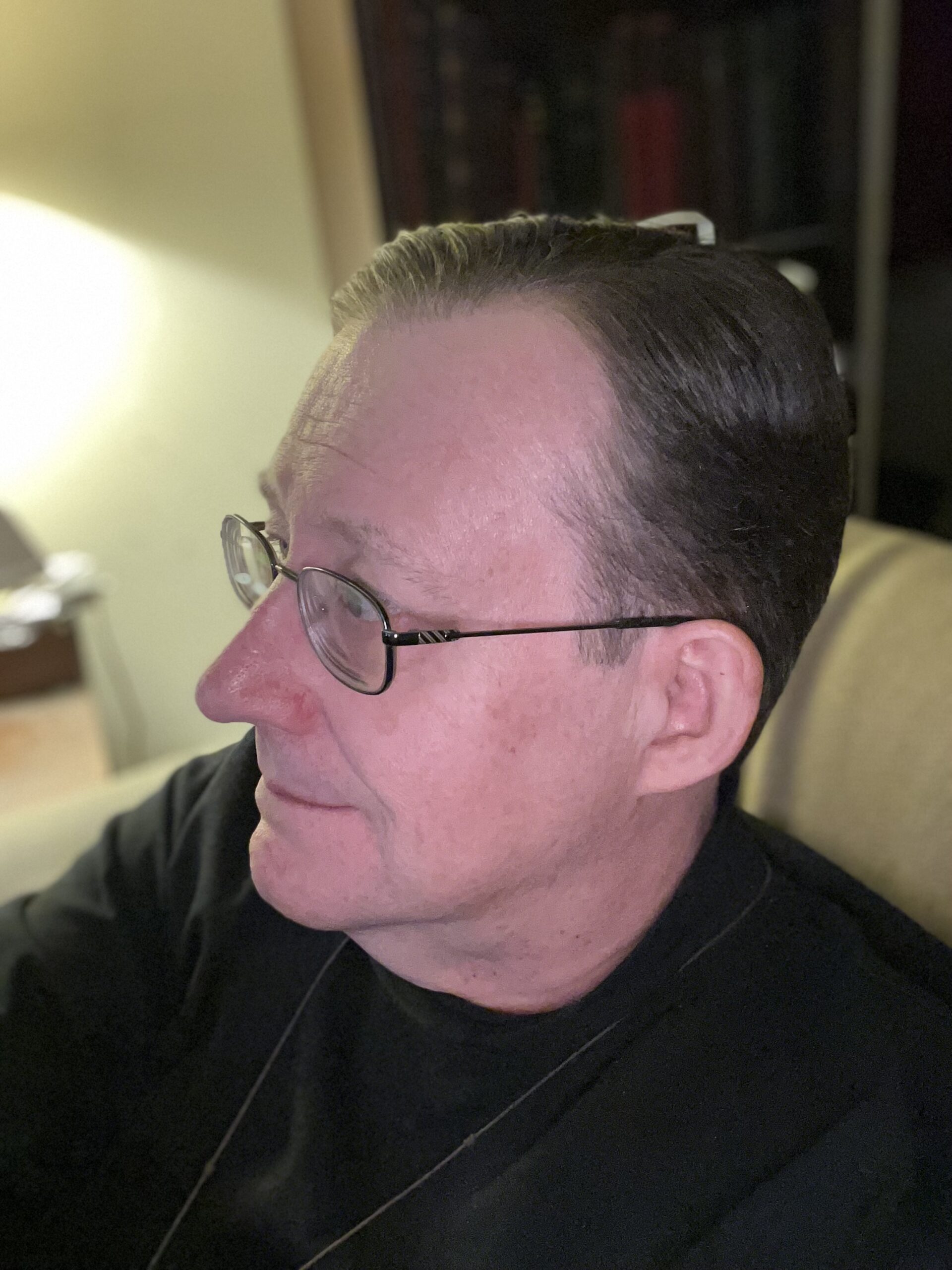At this year’s Easter Vigil service, I and two others were invited to give testimonies/meditations on what Christ’s death and resurrection meant to us. The following is mine, lightly edited for textual (as opposed to verbal) presentation.
When Mother Broderick asked if I would say a few words at the Easter Vigil, I was both thrilled and concerned. Thrilled because, as many of you already know, I love to hear myself talk. Concerned because I envisioned pitchforks and burning stakes being set up on the lawn as I made a hash out of Episcopal Church doctrine.
So, buckle up, folks. Let’s agree that if I keep this relatively short, you’ll give me a decent head start out the door.
We know that God created us—or allowed us to evolve—or nudged us along the evolutionary path—pick your favorite theory. How ever it happened, here we are. Why did He do it? The answer, I believe, is love. We say, “God is love,” but what is love without someone to love and to be loved by?
We exist because God wanted a relationship.
But love isn’t love unless it is freely given and freely received. To be in love, to be in a relationship, is a choice, so God gave us free will to accept or reject His love, to love Him or turn away from Him.
But just having that choice wasn’t good enough. You see, God is outside of human experience, outside of space and time. He exists in all places and in all times. We, however, do not. We experience space and time as a progression, in a sequence of heres and nows where we can neither go back nor see ahead. Yesterday is gone, tomorrow is a mystery; we can only be in this place at this time.
Have you ever been in a long-distance relationship? It’s hard. Love thrives in intimacy, in closeness. Love inspires us to know our loved ones, sharing all that we are with each other. So, to get close to us, to really know us, and for us to really know Him, God chose to step into space and time, and in the person of Jesus Christ become one of us, experiencing a human birth, life, and death.
And what a death. Crucifixion is a horrible, agonizing, slow death. You are hung up, naked for all the world to see, humiliated in every way possible. Passersby heckle you. The only way to breathe is to put all your weight on a nail driven through your ankle bones. Your struggles are laughed at by your executioners, as exposure, thirst, pain, and blood loss slowly sap you of the strength to push up on that nail.
Jesus did not have to do this. He did it because He loves us, a love of such unimaginable length, breadth, depth and height that only death on the cross could express it. A sacrificial offering of God, to God.
But that sacrifice, as awesome and terrifying as it is, is only the beginning. God’s ultimate act of love is Jesus’ resurrection. In the physical form of the resurrected Christ that the Apostles saw, touched and heard, we are given an example of our own ultimate fate. We are shown that our relationship with God does indeed extend beyond space and time. Through God’s love, we too will escape the limits of space and time. In the words of priest and poet John Donne, “O Death, be not proud… / One short sleep past, we wake eternally / And death shall be no more; Death, thou shalt die.”
In my darkest hours, there were times I looked in the mirror and saw a monster. I felt unworthy of being loved. I did not love myself. But then I considered Christ’s death and resurrection. Jesus loves me unconditionally, so much so that He died on the cross for me. For me! If God loves me that much, who am I not to love myself? What kind of hubris would it be not to love what God loves? God’s love is so strong, so all-encompassing, that death itself has no power over it. Like the Israelites who rose from the divided waters of the Red Sea, saved by God’s love from death at the hands of the Egyptians, I, too, will rise, someday. You, too, will rise, someday.
“I will sing to the Lord, for he has triumphed gloriously…”
Amen.

